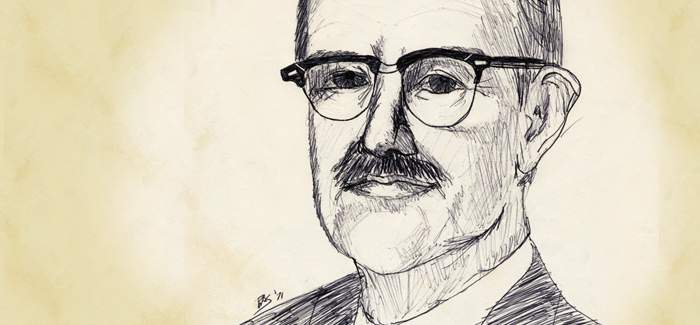
In 2005 the Committee on Human Development became the Department of Comparative Human Development. A former University human development research associate and instructor, Gerald Handel, AB’47, AM’51, PhD’62, professor emeritus of sociology at the City University of New York, writes in with his perspective on the roots of the term. If other alumni have more information on the origins of “human development,” please contact Dialogo editor Claire Zulkey. This letter has been condensed and edited.
Among the important concepts in social science developed at the University of Chicago, the term “human development” originated at Chicago, to the best of my knowledge.
In 1930 the faculty formed the Committee on Child Development. In 1940 they changed the name to Committee on Human Development. When I was working toward my AM in the late 1940s, students asked for a meeting with committee chair Robert J. Havighurst. We asked, “Who is going to hire us? Nobody else has human development.” That was true. Nobody else did. We were excited by the committee’s program but uneasy about what kind of reception we would get in the job world. Chairman Havighurst was reassuring.
Now, of course, many universities have departments with the name “human development” in them. Wikipedia connects the term with the United Nations, which did not exist in 1940. Nobel Prize–winning economist Amartya Sen seems to have been promoting his concept of human development since the early 1990s. Both the UN and Sen may get more publicity than the University of Chicago Committee on Human Development, but that doesn’t make either of them the originator of the term. Chicago was there first, although the Chicago emphasis is somewhat different (though overlapping) from the UN’s and Sen’s.
The influence of the term is substantial. At the very least, I believe that the Social Sciences Division should take credit for the concept and make that known.
